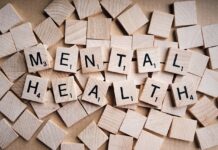Eating Disorders Awareness Week, observed from 25th February to 5th March, aims to raise awareness of the condition and shed light on the prevalence and impact of eating disorders in the UK. Lee Hawker-Lecesne, Clinical Program Director at The Cabin, Drug and Alcohol Rehab in Thailand looks at the increase in eating disorders, how to spot the signs and how to get help.
Prevalence of Eating Disorders in the UK
Recent data indicates a significant rise in eating disorders in the UK, particularly among young people. The claim that “1 in 50 people in the UK” suffer from an eating disorder equates to approximately 2% of the population. However, recent studies suggest this figure may be an underestimation. The charity Beat estimates that between 1.25 and 3.4 million people in the UK are affected by an eating disorder, with around 25% of those being male (Beat, 2024). Given the UK’s population of approximately 67 million, this suggests that up to 5% of the population may be affected.
The prevalence among young people has seen a notable increase. The proportion of 11 to 16-year-olds diagnosed with an eating disorder rose from 0.5% in 2017 to 2.6% in 2023. Among 17 to 19-year-olds, rates increased from 0.8% to 12.5% over the same period (House of Commons Library, 2024).
Impact of Social Media on Eating Disorders
Social media platforms have been identified as significant contributors to the development and exacerbation of eating disorders, especially among adolescents. A study by University College London found that social media use is a “plausible risk factor” for the development of eating disorders, particularly in young people, by increasing the risk of social comparison and promoting the need to be thin or fit (University College London, 2023). Platforms such as Instagram and TikTok have been noted for accelerating issues related to body image dissatisfaction.
Recent data indicates that 81% of UK internet users aged 18 to 24 engage with platforms like YouTube, with significant usage of other platforms such as Facebook and TikTok (Statista, 2024). This widespread usage underscores the potential for social media to influence body image perceptions and eating behaviours.
Lee emphasizes the complexity of eating disorders “eating disorders are complex mental illnesses that can affect anyone, no matter what gender, age, background, or ethnicity. This is a human issue, and left untreated, can result in serious long-term consequences. More awareness and education are needed to combat media-fueled stereotypes and encourage early intervention.”
He also highlights the multifaceted impact of social media on mental health “while providing a platform for expression and social support, research indicates a clear association between social media use and mental health problems. A staggering 92% of UK teenagers are active on social media, with the 13–17 age group being particularly heavy users.”
He further notes the various ways social media can affect well-being: “The impact on mental health is multifaceted, encompassing impaired sleep, cyber victimization, and social comparison.”
What is an eating disorder?
Eating disorders can take many different forms but when abnormal habits around eating, exercise, and weight take control, an eating disorder can arise including disordered eating, anorexia nervosa, bulimia nervosa, binge-eating disorder, amongst others. These obsessions can cause serious damage to an individual’s emotional, mental, and physical wellbeing.
Awareness of the signs and symptoms of eating disorders is crucial for early intervention.
Common indicators include:
- Preoccupation with weight and body shape
- Strict food habits or routines
- Self-induced vomiting or misuse of laxatives
- Excessive or compulsive exercise
- Avoidance of social situations involving food
- Mood fluctuations and behavioral changes
- Sleep disturbances
- Physical symptoms such as digestive issues, weight fluctuations, feeling cold, fatigue, or dizziness
If you are questioning your eating habits, ask yourself the following:
- Do you experience feelings of guilt or shame when you eat?
- Are you preoccupied by thoughts of being thinner?
- Do you tend to eat in isolation or secret?
- Have others commented on your eating habits?
- Do you weigh yourself at least once a day?
- Do you skip meals in order to lose weight or to avoid gaining weight?
- Do you exercise more than once a day?
- Do your emotions affect your eating habits?
- Do you avoid close relationships or social activities?
- Do you vomit after meals?
How To Get Help
If you said yes to more than one of the above, you might be struggling with disordered eating or an eating disorder. These behaviours and thoughts can develop gradually, often becoming ingrained before an individual recognizes the severity of the issue. Identifying these patterns early and acknowledging the impact they have on your daily life is an important step toward seeking professional support and intervention.
Increasing awareness and ensuring timely access to treatment remain essential in addressing the growing prevalence of eating disorders. Lee suggests “More awareness and education are needed to combat media-fueled stereotypes and encourage early intervention.”
If you or someone you know is exhibiting these signs, professional help should be sought promptly. Early treatment significantly improves the chances of recovery. Contacting a General Practitioner (GP) is the first step toward accessing support and treatment.
References
- Beat. (2024). “Prevalence of Eating Disorders in the UK.” Retrieved from https://www.beateatingdisorders.org.uk/about-beat/policy-work/policy-and-best-practice-reports/prevalence-in-the-uk
- House of Commons Library. (2024). “Eating Disorders Awareness Week: Statistics and Trends.” Research Briefing. Retrieved from https://researchbriefings.files.parliament.uk/documents/CDP-2024-0045/CDP-2024-0045.pdf
- Statista. (2024). “Social Media Platforms Used by UK Age Groups.” Retrieved from https://www.statista.com/statistics/1480562/social-media-platforms-used-by-age-group
- University College London. (2023). “Social Media Use and Risk of Eating Disorders in Adolescents.” Retrieved from https://www.ucl.ac.uk/research/social-media-eating-disorders
Help keep news FREE for our readers
Supporting your local community newspaper/online news outlet is crucial now more than ever. If you believe in independent journalism, then consider making a valuable contribution by making a one-time or monthly donation. We operate in rural areas where providing unbiased news can be challenging. Read More About Supporting The West Wales Chronicle





















